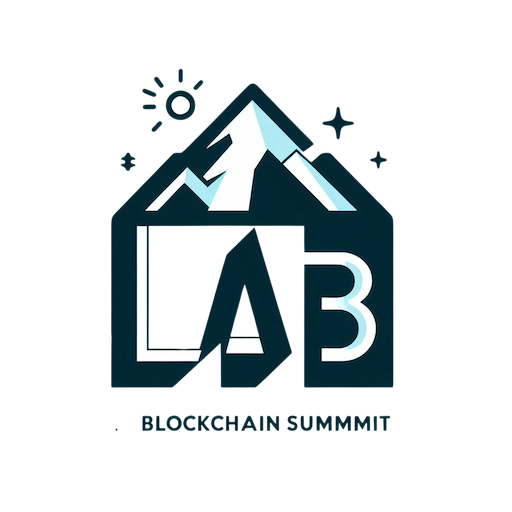
Had you any idea that the demand for crypto developers has skyrocketed by over 500% in the past few years? This staggering number highlights just how crucial these experts have become in the world of blockchain and digital currencies.
So, what exactly does a crypto developer do?
These tech-savvy professionals create and maintain decentralized applications (dApps) and smart contracts that power our favorite cryptocurrencies. They’re at the heart of innovations shaping finance, gaming, supply chain management, and more.
If you have been curious about diving into this field or worried about staying relevant in an ever-evolving tech world, you’re not alone. Many are grappling with where to start or how to transition their skills effectively.
I remember feeling overwhelmed when I first explored blockchain technology. But don’t worry; this article will break down everything from key concepts to practical steps you can take today.
Who Is A Crypto Developer?
Ever wondered who’s behind those fancy digital coins and mind-boggling blockchain tech? Let me introduce you to a crypto developer.
These folks are like the wizards of the digital world, crafting spells—err, code—that make cryptocurrencies work.
So, what exactly does a crypto developer do? Picture this: They’re the ones creating decentralized applications (dApps) that let you swap tokens, play games, or even buy virtual cats without needing a middleman.
Imagine coding so magical that it could cut out banks from financial transactions! If I told my grandma this, she’d probably think it’s some Harry Potter stuff.
Crypto developers also build smart contracts. Think of these as self-executing contracts where the terms are written directly into lines of code. No lawyers are needed—just pure logic and trust in math. For example, if Alice sends Bob 1 Bitcoin (BTC), then Bob’s car automatically unlocks for Alice.
But let’s not kid ourselves; this job isn’t all rainbows and unicorns. There’s a steep learning curve here. When I first dabbled in Solidity (the programming language for Ethereum), it felt like deciphering hieroglyphics from an alien planet.
But hey, no pain no gain, right? What makes someone want to become a crypto developer in the first place?
For many, it’s about being part of something groundbreaking without wearing a suit and tie every day. It’s about innovation with a sprinkle of rebellion against traditional finance systems.
Curious how this field is evolving? Well, more industries are hopping on the blockchain bandwagon—from healthcare tracking patient records securely to gaming companies offering unique in-game assets via NFTs (non-fungible tokens). The possibilities seem endless!
Why should you care about who these developers are? Because they’re shaping the future one line of code at a time while sipping coffee just like us mere mortals.
Skills Required For A Crypto Developer

Alright, let’s jump into the stuff you need to know if you want to be a crypto developer. Spoiler alert: It’s not just about coding!
Programming Languages
First off, programming languages are your bread and butter. You gotta get cozy with a few key ones:
- Solidity: This is like the secret sauce for Ethereum-based projects. If you’re making smart contracts on Ethereum, you’ve got to know Solidity.
- Python: It’s versatile and used in tons of blockchain applications. Plus, it’s beginner-friendly.
- JavaScript: Used everywhere from web development to blockchain, especially with frameworks like Node.js.
I remember when I first tackled Solidity; it felt like learning Pig Latin all over again. But once you get the hang of it, it’s pretty rewarding.
Understanding Blockchain Technology
Next up is understanding blockchain technology itself. Imagine explaining how email works but for money and data. The basics include:
- Blockchain Basics: Know what blocks are (like digital containers) and how they chain together (linked list-style).
- Consensus Algorithms: Fancy term for how everyone agrees on what’s legit in the network without needing a bossy middleman.
When I was starting, I had this eureka moment after reading Satoshi Nakamoto’s white paper—it’s like the Rosetta Stone for blockchain geeks.
Cryptography Knowledge
Cryptography might sound intimidating but think of it as making secret codes that only certain folks can crack:
- Public-Key Cryptography: Like having an inbox anyone can send mail to but only you have the key to open it.
- Hash Functions: They turn data into fixed-size strings of letters and numbers—think of them as digital fingerprints.
It’s kinda funny—cryptographers were probably those kids who loved playing spies growing up! And now they’re keeping our digital assets safe.
Roles And Responsibilities Of A Crypto Developer
Smart Contract Development
Alright, imagine you’re writing a set of rules for an invisible robot that never breaks them. That’s what smart contract development is like. These are self-executing contracts with terms directly written into code (think of it as legalese but in 1s and 0s). So, if you’ve ever thought about making deals without needing a middleman, this is your jam.
Crypto developers create these smart contracts to automate transactions once certain conditions are met. For example, I once helped develop a smart contract for a logistics company where payment was automatically triggered when goods arrived at the port. It felt like magic—well, nerdy magic!
Security Audits
Ever left your house only to wonder if you locked the door? Now imagine that feeling times ten because crypto wallets can hold millions! Security audits are essential; they’re like having a bouncer who checks every corner before letting anyone inside.
Developers scrutinize code for vulnerabilities to prevent hacks and breaches. They run simulations to see how the system behaves under attack scenarios. Think digital stress-testing—like seeing if your house could withstand an earthquake but less terrifying and more “Oh no, my coins!”
Decentralized Application (DApp) Development
So you know those apps on your phone? DApps are similar but cooler—they run on blockchain networks instead of central servers. Developing DApps means creating software where data isn’t stored in one place but spread across many computers.
I once worked on a decentralized finance app where users could lend or borrow money without traditional banks involved. Imagine Venmo meets Bitcoin’s wild west adventure—no single entity controls it, which makes things exciting and sometimes chaotic.
Maintenance And Upgrades
Building something awesome isn’t enough—you’ve got to keep it running smoothly! Maintenance and upgrades involve fixing bugs (those pesky errors) and adding new features based on user feedback.
I remember this one time we pushed an upgrade during peak hours—it was nerve-wracking! But watching users enjoy new functionalities made all sweat worth it. Plus, there’s always that moment when everything works perfectly after some frantic coding—it feels like winning at Tetris!
Popular Tools And Resources For Crypto Developers
When I first dipped my toes into the wild world of crypto development, I felt like I was trying to learn a new language while juggling flaming swords. But with the right tools and resources, the process became much more manageable. Let me share some of these gems with you.
Development Frameworks
One thing that kept me sane was finding the right frameworks. They’re basically like pre-built Lego sets for developers. Instead of starting from scratch, you get a bunch of pieces that fit together nicely.
- Truffle Suite: This is a lifesaver if you’re working on Ethereum projects. It includes everything from compiling smart contracts to managing deployments. Imagine having a Swiss Army knife but for coding dApps (decentralized applications).
- Hardhat: Another cool tool that’s super user-friendly. It helps in testing and debugging your smart contracts locally before going live. Think of it as your personal sandbox where you can safely play around without breaking anything important.
- Brownie: If Python is your jam, then Brownie’s got you covered for Ethereum development. It’s like Truffle’s cousin who prefers Python over JavaScript.
Online Courses And Tutorials
I remember feeling overwhelmed by all this new information until I found some killer online courses and tutorials that broke things down into bite-sized chunks.
- Coursera & Udemy: Both platforms offer comprehensive courses on blockchain and crypto development. You can find classes ranging from beginner to advanced levels. They’re like having Netflix but for learning how to code in Solidity or understanding blockchain mechanics.
- CryptoZombies: This one adds a bit of fun to the mix—who doesn’t love zombies? It’s an interactive tutorial that teaches Ethereum development by building games step-by-step.
- YouTube Channels: Don’t underestimate good ol’ YouTube! Channels like Dapp University and EatTheBlocks provide free content that’s both informative and engaging. Perfect for those times when reading feels too much like assignments.
Community And Networking
Let’s face it; going solo in this field can make you feel like Tom Hanks in Castaway talking to Wilson the volleyball. Getting involved in communities helped me stay motivated and updated with industry trends.
- Reddit & Stack Exchange: These forums are treasure chests full of discussions, solutions, and advice from fellow developers facing similar challenges. Reddit’s r/ethdev community has been particularly helpful for sharing insights about Ethereum-related queries.
- Meetup Groups & Conferences: Attending local meetups or big conferences like Devcon not only boosts your knowledge but also connects you with potential collaborators or mentors who’ve been through what you’re experiencing now.
- Discord Servers & Telegram Groups: Real-time chats on platforms like Discord or Telegram keep you looped into ongoing conversations within niche groups focused specifically on various aspects of crypto dev work—from DeFi (Decentralized Finance) projects to NFT (Non-Fungible Token) innovations.
Career Opportunities And Growth
Job Prospects
Crypto development jobs are booming. Imagine being part of a gold rush, but instead of pickaxes, you’re armed with code. That’s what it feels like in this field right now. With blockchain tech spreading its wings into finance, healthcare, and gaming, developers are like digital superheroes swooping in to save the day.
Why is this happening?
Well, everyone wants a piece of the crypto pie. Banks need secure transaction systems; gamers want decentralized platforms; even artists are jumping on board with NFTs (those funky digital art pieces). If you know your way around smart contracts and dApps (decentralized applications that run on blockchains), you’ve got companies lined up at your door.
Average Salaries
Let’s talk money because who doesn’t love that? Crypto developers earn some serious cash.
On average, salaries range from $80K to $150K annually depending on experience and location. But here’s the kicker: top talent can pull in even more.
I remember my first job offer – I almost fell off my chair seeing the numbers! It felt like Monopoly money until I realized it was real. And it’s not just about the base salary; many companies throw in crypto bonuses too. So if Bitcoin soars while you’re holding some company-given tokens, that’s a nice little nest egg growing without lifting a finger.
